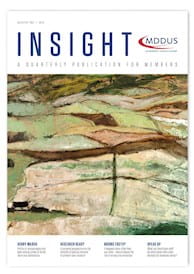
EVEN nurses are not compassionate anymore...,” the eminent plenary speaker informed the medical conference. He proceeded to describe an experience relayed to him by a current junior doctor.
“…She had a patient on the ward who was in pain, so she went up to the nurse who was administering the medications and asked for some painkillers. And the nurse said: ‘Wait until I’ve finished or ask someone else’’ What do you make of that?”
There was almost an audible sigh in the auditorium as the audience sadly shook its collective head at the thought that “even nurses” were no longer prepared to respond to a patient’s distress.
Some of the audience were shaking their heads for a different reason. They were seeing this story not as a failure of compassion on the part of the nurse, but a failure of moral imagination on the part of the storyteller. The nurse was the villain; the junior doctor – fresh from medical school, patient-centred and idealistic – was the hero. But what if life is more complicated than this?
Many of us have seen nurses forced to wear tabards over their uniforms as they dispense medications – these tabards usually say things like ‘Do not disturb me. I am administering medications’. Surely this is not mere formalised unfriendliness? And those of us who remember sessions on clinical governance and medical error will know the chances of a patient being given the wrong drug or dose are unacceptably high, especially if the person prescribing or administering is distracted or tired.
So the nurse in this tale may not have been lacking in compassion at all. Perhaps she was more motivated by the desire not to harm her patients. I have since used this story to illustrate the concept of interprofessional ethics to colleagues. Both the nurse and the doctor had worthy principles but different priorities and somehow there was a failure to see the other’s perspective.
In 2007, Phillip Clark and colleagues suggested in the Journal of Interprofessional Care that we might better ‘see’ that other perspective if we imagine that different professions, albeit engaged in the endeavour of good care, may have different or differently interpreted ethical principles, a different professional sociology, and may be labouring under different conditions and processes. ‘Principles’ may include things like compassion – historically much more central to nursing (about care) than medicine (with its focus on diagnosis and scientific treatment). The ‘sociology’ and history (which Clark and colleagues call ‘structures’) might include the way that doctors often prescribe and nurses administer medications, or the way that obstetrics in the UK gravitates towards pathological pregnancy and midwifery towards physiological pregnancy.
The ‘processes’ refer to the factors that sway our everyday decisions. Whilst many professionals may come together as a notional team, they may be paid and penalised differently. For example, undergraduate students from different healthcare professions working on a joint interprofessional education project may have different marks allocated for their joint presentation and different incentives to participate. In the professional world, what may result in a disciplinary slap on the wrist for a junior doctor may mean worse sanctions for a trainee nurse or criminal charges for a pharmacist. Clark and colleagues wisely do not leave their explanation at the level of the individual – this way of thinking (principles, structures and processes) should also be applied at the level of the team and that of the organisation.
The story with which I began was told in the wake of the Mid-Staffordshire scandal – widely declaimed as a corporate failure of compassion. Around the same time I came across another story told by Julie Wintrup in a paper on ethics education. Wintrup describes a scenario in which hospital nurses were too busy with their medical tasks to find time to help elderly patients drink an adequate amount of water. Doctors wrote up water to be given orally on the patients’ drug charts. Wintrup (no pun intended here) suggests that this is not an ethical solution. You might want to reflect on why this is the case.
Interprofessional ethics is an important facet of professional life in the 21st century. It is as relevant in hospital medicine as in primary healthcare. Moral imagination will sometimes allow us to see that different professions may have a perfectly valid reason for not agreeing, and a dose of humility may allow us to accept that sometimes another professional’s moral gaze sees something we do not.
Dr Andrew Papanikitas is academic clinical lecturer at the University of Oxford
Note: Professor Deborah Bowman will be back in the next issue of Insight
This page was correct at the time of publication. Any guidance is intended as general guidance for members only. If you are a member and need specific advice relating to your own circumstances, please contact one of our advisers.
Read more from this issue of Insight

Save this article
Save this article to a list of favourite articles which members can access in their account.
Save to library